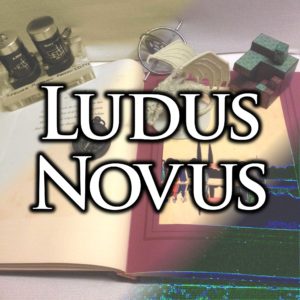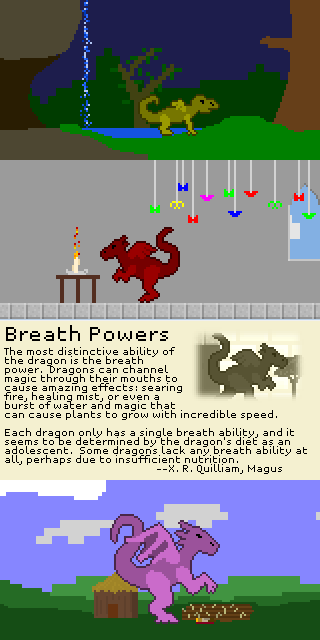
This podcast episode is about three games that should have been named Half-Life 3: Episode 1, Unreal Tournament 4, and Star Wars Dark Forces 3: Jedi Knight 2: Jedi Outcast: Jedi Academy.

This podcast episode is about three games that should have been named Half-Life 3: Episode 1, Unreal Tournament 4, and Star Wars Dark Forces 3: Jedi Knight 2: Jedi Outcast: Jedi Academy.
My significant other’s a writer. She’s been writing short-short fiction lately, and she’s just posted a sublime piece of fanfic about Team Fortress 2.
“Doctor… it is almost time…” the Heavy said insistently. He looked around, but as usual, no one paid them any mind. He and the doctor were always together.
The doctor looked up at him in surprise. “Ve only have 50 seconds,†he said, also glancing around.
“Get behind me, doctor,†the Heavy urged.
Read the whole thing at A Nerd’s Haven. It’s SFW as long as you don’t read too closely.
My June game is finished. It’s called How to Raise a Dragon, and it’s a game about dragons, humans, and eating things.
The dragon: a majestic and complex beast. How is it born? How does it live and die? Magus X. R. Quilliam’s definitive work, How to Raise a Dragon, describes all that is known about these great creatures.
Play How to Raise a Dragon on Armor Games.

This week I had one of those great GM moments. In my Promethean game, my players have been presented with a dilemma: they’ve found the workshop of a character who named himself Paracelsus, who was in search of an alchemical elixir called the Ascendance Formula. However, as the players were told by a mystical qashmal, his choices of ingredients were “not human enough.” Instead of turning human, Paracelsus was killed and his body split apart into a collection of monsters.
Clearly, I’m trying to set up a dilemma here. This formula could be a shortcut to mortality for the player characters, but it is very dangerous; not only could it kill you, but it can also create new monsters to make everyone’s life more difficult. As a GM, when you set up this sort of dilemma, you want to create inter-player tension and discussion. I think I succeeded. At the end of this week’s session, the player characters sat down and discussed the dilemma in detail, and they each had interesting perspectives.
One character, a loner soldier and sometimes thief, wanted nothing to do with the formula. Screw the alchemy, screw the existing monsters, just get the hell out of town. Another, a naive tinkerer with Tesla’s right hand, was all for trying the formula for himself. Build a cage around the experiment area, sure, shoot him before he turns into a monster, but he wanted to take the chance. Finally, the flighty con artist of the group had a brainstorm. The tinkerer can try the formula, and if it works (and maybe even if it doesn’t), the surviving party members can sell the formula to other Prometheans. With the promise of money, the soldier was won over, and a plan is in place… for now.
As a GM, I get the most amount of glee from when players are deliberating over these sorts of interesting choices. If the choice is easy, it’s not providing the players much (high-level) agency. Only when a decision is difficult — when there is no clear “right” alternative — are the players truly choosing their own path through the narrative. And if there’s inter-PC conflict in the decision process, then that just makes my job more of a success.
So for now, I’m feeling good about my campaign. We’ll see how next session goes.
GameSetWatch just posted my latest article. It’s called “Interplay in Left 4 Dead,” and it’s about how the various kinds of enemies in that game interact to become stronger than the sum of their individual strengths.
L4D is such an astonishingly complex game. So much more can be said about it, and I expect to get at least one more post out about how the weapons all work together. This is a game that, like Portal, has clearly been fine-tuned and adjusted to a glossy finish. But while Portal was cut down and simplified to make it a smooth, well-crafted ride, L4D was cut down to a tangled knot of gameplay interactions, making it this chaotic, complicated, minute-to-learn-and-lifetime-to-master enigma of a game.